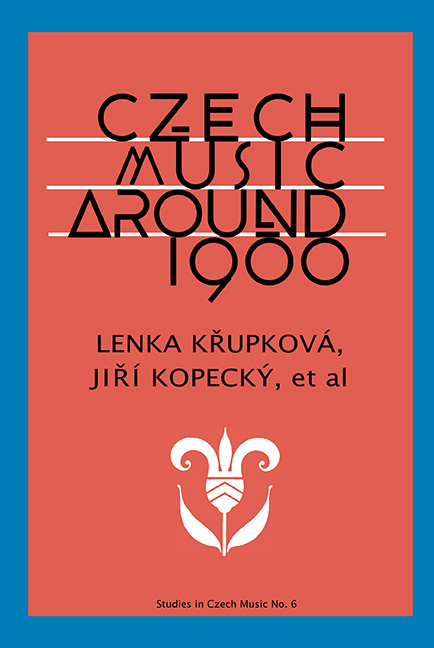Book contents
- Frontmatter
- Table of Contents
- Introductory Remarks on the Conception of This Book
- Flowers in the Graveyard, Tombstones in the Garden
- The “Other World” of Music at the Turn of the Century
- In the Footsteps of Tradition: The Spirit of Romanticism
- 1892: The International Success of Smetana's The Bartered Bride
- A Rare Meeting of Minds in Kvapil's and Dvořák's Rusalka: The Background, the Artistic Result, and Response by the World of Opera
- Delayed Subjective Romanticism in Czech Music: Novák as a Romantic
- Čapek's Feminism and Janáček's Femme Fatale: Notes on Traditional Opera Aesthetics in Janáček's Opera The Makropulos Case
- Czech Music at the Heart of European Music round 1900
- The Clash with Compositional Issues of European Music
- Index
- List of Illustrations
- About the Authors
- List of Sources Cited
1892: The International Success of Smetana's The Bartered Bride
from In the Footsteps of Tradition: The Spirit of Romanticism
- Frontmatter
- Table of Contents
- Introductory Remarks on the Conception of This Book
- Flowers in the Graveyard, Tombstones in the Garden
- The “Other World” of Music at the Turn of the Century
- In the Footsteps of Tradition: The Spirit of Romanticism
- 1892: The International Success of Smetana's The Bartered Bride
- A Rare Meeting of Minds in Kvapil's and Dvořák's Rusalka: The Background, the Artistic Result, and Response by the World of Opera
- Delayed Subjective Romanticism in Czech Music: Novák as a Romantic
- Čapek's Feminism and Janáček's Femme Fatale: Notes on Traditional Opera Aesthetics in Janáček's Opera The Makropulos Case
- Czech Music at the Heart of European Music round 1900
- The Clash with Compositional Issues of European Music
- Index
- List of Illustrations
- About the Authors
- List of Sources Cited
Summary
DIRECTOR OF THE NATIONAL THEATER F. A. ŠUBERT AND CZECH OPERA
The generation that began striving for erection of a Czech National Theater was one to whom the revolutionary year of 1848 gave hope for the political rebirth of Czechs within the Habsburg monarchy. The severe repression then imposed by Alexander Bach, named Minister of the Interior by the young Emperor Franz Joseph I, forced the idea of a National Theater to the background. When at last the “October Diploma” was proclaimed in 1860, allowing freer and more independent development to all the nations in the empire, the “Provisional [Czech] Theater” was soon opened in 1862, intended only as a temporary response to desires for a National Theater. However, this provisional situation lasted until 1881, and was then prolonged further to 1883 because on 12 August 1881, soon after its opening, the National Theater was gutted by fire. The year 1883 constitutes a landmark in the development of Czech national opera, a landmark toward which the efforts of Bedřich Smetana (1824-84) were aimed and which defines the generation of his successors. The works of Czech composers who composed for the “large” stage of the National Theater rather than the “small” Provisional Theater, seen in the light of performance of, reviews of, and reception of Smetana's operas, show many features in common. To bring them into focus we must first take a look at the management of this theater, erected as a showcase “by the nation for itself” and given the apt nickname “the golden chapel”. The National Theater was opened festively with the premiere of Smetana's opera Libuše.
In view of the prestigious standing of the National Theater in Czech culture of the second half of the nineteenth century, its first and long-term director František Adolf Šubert (1849-1915) acquired an important political and cultural position. He stood at the summit of his career in the mid-1890s, before Gustav Schmoranz took over the ‘reigns’ of the National Theater in 1900. Radical transformations in the theater's operations were then implemented by the new head of spoken plays Jaroslav Kvapil and the new head of the opera Karel Kovařovic. In 1901 Kovařovic replaced the orchestra and a major portion of the chorus! The extent of these uncompromising changes attests to the poor state of the National Theater at the end of the century.
- Type
- Chapter
- Information
- Czech Music around 1900 , pp. 41 - 60Publisher: Boydell & BrewerPrint publication year: 2017



